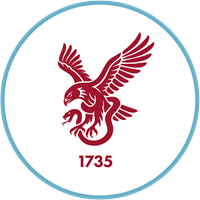The mathematics curriculum aims to equip pupils with the knowledge and ability to apply their mathematics skills to a range of contexts by breaking tasks or problems down into a series of simpler steps and persevere in seeking solutions. In the mathematics department we foster an ethos of bravery, consistency, and challenge for all students.
Throughout our 5-year curriculum we place a real emphasis on stimulating prior knowledge to ensure a sound basis for new learning. We want students to understand the value of what they have learnt previously and realise its power in being successful with new learning.
As a department we understand the power of mathematics to open the door to further education and give students confidence in future life. We recognise the importance of milestone examination results but also the power of problem solving that mathematics can offer to students as they move on to the next stage of their lives. We have a fundamental belief that all pupils can achieve in mathematics and that this can be achieved through the process of intelligent practice, thoughtful lesson design and a well-designed curriculum.
Breadth & diversity: Students cover the full range of mathematical themes of concepts, revisiting most each academic year. This is complemented by an enrichment programme experienced once a term by lower year groups, and a range of internal and external mathematical competitions for all year groups.
Inclusive, Accessible, Aspirational, and Inspiring: We have a fundamental belief that all pupils can achieve in mathematics and that this can be achieved through the process of intelligent practice, thoughtful lesson design and a well-designed curriculum. Our aim is to keep avenues as wide as possible for as long as possible when working towards GCSE examinations. Our enrichment programme encourages students to consider mathematics in inspiring contexts including through the stock exchange, architecture, travelling the globe and in the world of sport.
Themes and concepts are used as strands that run through the curriculum: Themes that run throughout our curriculum are the structure of the number system, operating using number, multiplicative reasoning, sequences and graphs, statistics and probability, and geometry. Each of these are broken down into concepts that are then visited in a cyclical curriculum, reinvigorating, and building on student’s skill set year on year.
Well-structured development of knowledge and skills: In Years 7 and 8 we use pictorial and concrete representations, moving towards more formal abstract methods in from Year 9 onwards. We have used White Rose Mathematics and Pearson Edexcel 9-1 schemes of work as the basis for our curriculum and are continually adapting and reflecting on these to ensure they fit the needs of our students year on year.
Impact
In Years 7 and 8 progress is measured through pathways (emerging, developing, secure and mastery) that make broad links to GCSE numerical grades. Year 9 is the transition year between pathways and GCSE numerical grade targets. In Years 10 and 11 progress is measured through regular end of unit assessment which use past GSCE exam questions and grade boundaries from 2019 to measure progress towards achieving target grades.
The outcomes of these measures will be used to inform teaching and revision, with the aim of supporting students’ progress. Students will be encouraged to revise and supported in doing so as the course draws to a close.
Examination performance continues to be above national average and a pleasing number of students continue to study A level mathematics. The percentage of students achieving above grade 4 and grade 5 are above the national average. Every year we are particularly proud of students who regardless of starting point, show the resilience and determination to exceed their target grades through focused revision and a desire to succeed.

